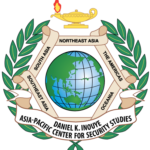By Deon Canyon and Sebastian Kevany*
Vaccine Fears versus Epidemic Containment
There are at least 51 brands of viral vaccines containing inactivated or attenuated viruses. Inactivated vaccines prompt an immune response by introducing dead virus particles, while attenuated vaccines contain non-pathogenic live virus particles. These and other vaccines have been extremely effective around the world in preventing 6 million deaths annually, while in the United States, nine diseases have been reduced by 99%.
People are unimmunized for various reasons. Most are children who miss out on basic immunization in developing nations due to lack of access. For instance, 190,000 children die annually in Ethiopia due to a lack of vaccine coverage and antibiotics. Some people have medical exemptions due to weak immune systems or severe allergies and reactions to vaccines or their components. Some are allowed to opt-out due to religious beliefs with no substantiating evidence. Some opt-out for personal or philosophical reasons, including believing in disproved theories. Despite the existence of evidence against the bulk of perceived vaccine risks, anti-vaccine sentiments persist and grew by 7.8 million since 2019 on Facebook due to unsubstantiated COVID vaccine concerns.
The causes of this fear and mistrust are manifold, ranging from historical fears of vaccination experimentation, ethnic-related side effects; misinformation on vaccine effectiveness and efficacy; and a widespread ‘wait and see’ approach by more conservative elements of the world’s population, many of whom would prefer to observe potential problems amongst the initial cohort, and await associated trouble shooting, rather than put themselves in the front line of participants.
The unprecedentedly rapid speed of COVID-19 vaccine development and approval, combined with the ongoing doubts over the duration of effectiveness and the effectiveness of the vaccine in preventing those vaccinated from acting as unknowing carriers of the virus, should also be taken into consideration. All vaccines currently lie under emergency use authorizations (EUAs) from the Centers for Disease Control and Prevention and their global counterparts. In such a situation, a certain amount of doubt, mistrust, and fear, at the population level, is acceptable.
Even in non-crisis conditions, governments can tolerate a certain level of anti-vaccine behavior because vaccines protect unimmunized people through herd protection, which occurs when a sufficient proportion of the group is immune. Unfortunately, unimmunized people do not protect society; rather, they endanger it through harm to themselves, harm to others, and increasing the health burden on society, which drives up both insurance rates and health risks for all.
Many experts expect that COVID-19 will persist into the future due to a lack of herd immunity manifesting in regular winter surges. While some predict that these infections will be mild and somewhat akin to the common cold, others predict that SARS-CoV-2 may become a fairly unpredictable seasonal scourge due to anti-vaxxers, waning immunity, viral mutations, and a consequent inability to reach herd immunity.
Yet, for this extensive global social and medical experiment to have any hope of success, acceptance of vaccinations is essential at the community and individual level. And yet, the latest Pew polling results show that 30% of adults in the US will likely forgo vaccination, and 15% will certainly not get vaccinated.
The Need for a Hard Line against Doubters
This situation would be morally and ethically acceptable, perhaps, were it not for the potential impact on those members of society who cannot accept the vaccine for allergy or other health reasons and who therefore rely on broader population-level coverage to have any hopes of protection. However, public outrage is growing in many areas due to the existential threat posed by the unvaccinated. Vaccine refusal is not simply a matter of avoiding personal risk. It is effectively weaponizing a segment of a population who can potentially become infected and harm or even kill others and represents an incredible degree of selfishness and disregard for the lives of others.
This groundswell of concern is driving political decisions in a new direction. In Israel, though no formal punitive restrictions have been applied to vaccine skeptics, there is already tension between those who accept and those who reject vaccinations. Questions over civil rights, privacy issues, and potential discrimination against those who reject offers of the vaccine are already in play. Similarly, in France, a mass anti-vaccine movement continues to delay coverage and health security at the national and even the European level.
After Greece proposed having a vaccine passport, several high-level meetings were held, which resulted in the vice president of the European Union Commission revealing that various options were being considered for the handling of travel in Europe, including the introduction of electronic vaccination certificates.
Israel led the world in vaccination coverage and was the first to face the challenge of balancing the need to protect a population against the rights of individuals: a world that allows people to refuse vaccination must institute protective mechanisms to ensure they do not endanger the rest of the population. In this alternate quasi-Darwinian world, cohorts who trust and accept the risks of vaccines are best protected by them, while those cohorts who do not accept offers of vaccinations find themselves placed in different social and public health categories – ones in which, potentially, rates of morbidity and mortality will be significantly higher than in the vaccine acceptance cadre.
The New Normal?
Thus, removing lockdowns and reopening a state could easily include leaving certain restrictions in place for the unvaccinated. The Israeli Health Minister has warned, “Whoever does not get vaccinated will be left behind.” Employers would be perfectly within their rights to exclude anti-vaxxers from the workplace, while unions are trying to minimize this by recommending regular expensive testing. In parallel, entertainment centers, retail outlets, resorts, cruise liners, and airports could protect their clients by restricting access to those with vaccine certificates.
In general, governments are being slow to react and pass laws on either side of this balance between protecting everyone versus protecting the unimmunized, which has resulted in municipalities and businesses instituting their own rules. However, in Israel, a law was passed by parliament to permit the Health Ministry to send the names of unvaccinated people to municipalities because vaccination is now a public, not a private concern. Exclusion policies will certainly have a significant impact on children who cannot go to school, while adults face increasing isolation and discrimination as they are forced to remain working and to purchase from home. According to a legal opinion, employers are expected to accommodate unvaccinated staff by allowing them to telework or work in separate quarters, but will likely fire those who cannot comply.
In turn, national and international security considerations come into play. Security sectors, including Police, National Guard, and national military forces will have to carefully plan how to deal with anti-vaccine sentiments both amongst their personnel, amongst the populations they serve, and in terms of assistance with international vaccine operations.
National security may also be compromised by delays in returning societies and economies to pre-pandemic levels of performance in those countries with high levels of vaccine refusal. Nations whose populations that chose to ‘wait-and-see’ if COVID vaccines are necessary may also experience international isolation resulting in continuing economic decline – with commensurate destabilizing internal security effects.
Vaccines do more than save lives. They provide communities a chance to thrive. The COVID crisis, manifesting high uncertainty, threat and urgency, requires advanced systems thinking on a wide range of strategies to deal with possible outcomes to mitigate the existential consequences for communities and health systems. Policy-makers thus need to move away from being perpetually responsive in a knee-jerk fashion by engaging in the type of thinking required to be better prepared to get, and stay, ahead of the curve.
* Drs. Canyon and Kevany are professors at the Daniel K. Inouye Asia-Pacific Center for Security Studies (DKI APCSS) in Honolulu, USA. The views expressed in this article are the author’s alone, and do not necessarily reflect the official position of the DKI APCSS or the United States Government.
The views expressed in this article are the author’s alone, and do not necessarily reflect the official position of the DKI APCSS or the United States Government. March 2021
Published: March 26, 2021
Category: Perspectives
Volume: 22 - 2021
Author: Deon Canyon,Sebastian Kevany





